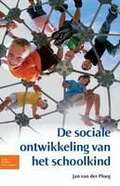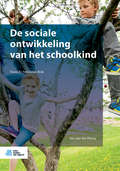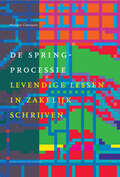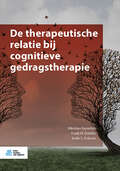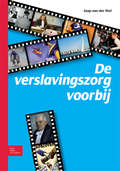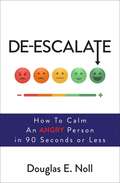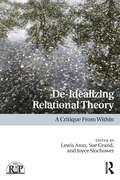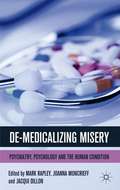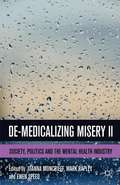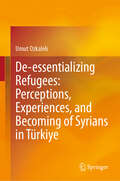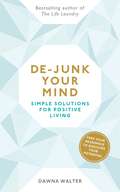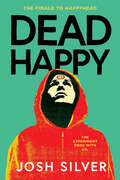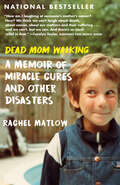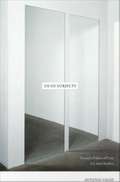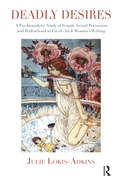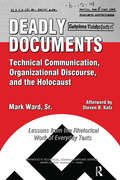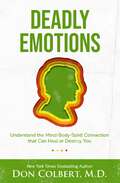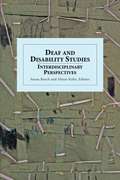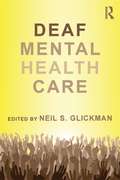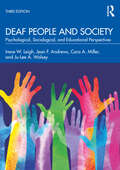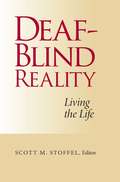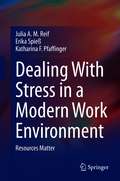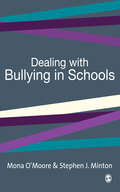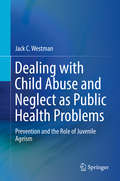- Table View
- List View
De sociale ontwikkeling van het schoolkind
by Jan van der PloegHet boek geeft een een helder inzicht in de wijze waarop de sociale ontwikkeling van kinderen in de basisschoolleeftijd tot stand komt. Het wijst ook op het belang van de omgang met leeftijdgenoten. Het boek laat verder zien hoe hoe prosociaal gedrag is te stimuleren en antisociaal gedrag is te voorkomen.
De sociale ontwikkeling van het schoolkind
by Jan van der PloegDit boek beschrijft de sociale ontwikkeling van kinderen van 4 tot 12 jaar. Het laat zien hoe de sociale ontwikkeling verloopt en hoe opvoeders die kunnen beïnvloeden. Het boek is geschreven voor iedereen die werkt met schoolgaande kinderen, zoals leerkrachten, intern begeleiders, remedial teachers, schoolpsychologen en professionals in de jeugdzorg. Ook is het geschikt voor iedereen die nog in opleiding is voor zulk werk, en natuurlijk voor ouders die geïnteresseerd zijn in de sociale ontwikkeling van hun schoolgaande kind. De sociale ontwikkeling van het schoolkind beschrijft verschillende typen relaties tussen kinderen onderling. De betekenis van die relaties is jarenlang sterk onderschat, maar ze vormen een centraal en onmisbaar aspect van de sociale ontwikkeling. Dit boek geeft praktisch en helder antwoord op vragen als: wat houden deze relaties in? Waarom hebben sommige kinderen geen of negatieve relaties? En hoe dragen deze relaties bij aan het ontstaan van prosociaal of antisociaal gedrag? Ook gaat het boek in op andere factoren die van invloed zijn op de sociale ontwikkeling, zoals de sociaaleconomische positie, de genen en het brein. Jan van der Ploeg is emeritus hoogleraar Orthopedagogiek aan de Universiteit Leiden. Hij is auteur van meerdere boeken, zoals Eenzaamheid bij jeugdigen, Agressie bij kinderen en Behandeling van Gedragsproblemen.
De springprocessie: Levendige lessen in zakelijk schrijven (Docentenreeks)
by M. ClaessensHoewel er nogal gewichtig over wordt gedaan, worden zakelijke teksten 'gewoon' geschreven door mensen van vlees en bloed die schrijven omdat ze iets willen zeggen. Dat is de essentie van dit boek.De springprocessie biedt zestien vrolijke en trefzekere oefeningen waarmee u uw studenten in sprongen kunt leren schrijven. In sprong 1 uiten studenten hun gedachten, observaties en emoties ('Laat je gaan!'), en wel zó dat er precies staat wat ze bedoelen ('Zie ik het echt voor me?'). In sprong 2 leren ze hun lezer 'van binnenuit' kennen en hun teksten op hem af te stellen ('Luister naar de stem van de lezer en becommentarieer zo je tekst'). In sprong 3 is die stem geïnternaliseerd en doen ze aan zelfhulp ('Schrijf eerst brutaal, dan flemend en dan precies goed'). Ze analyseren de context en controleren hun strategie ('Bedenk uitvluchten voor de lezer om niet op je verzoek in te hoeven gaan'). Schrijven is actie, maar ook interactie en reflectie. De teksten worden voorgelezen, geanalyseerd enherschreven.
De therapeutische relatie bij cognitieve gedragstherapie
by Nikolaos Kazantzis Frank M. Dattilio Keith S. DobsonDit boek laat zien hoe de therapeutische relatie in de cognitieve gedragstherapie (CGT) kan worden ingezet om verandering te weeg te brengen. Het beschrijft onder andere hoe casusconceptualisatie gebruikt kan worden om te beslissen wanneer relatieproblemen moeten worden aangepakt, welke specifieke strategieën moeten worden gebruikt (bijvoorbeeld het uiten van empathie of het vragen van feedback aan cliënten) en hoe therapeuten kunnen omgaan met hun eigen emotionele reacties tijdens een therapiesessie. De therapeutische relatie bij cognitieve gedragstherapie legt daarnaast uit hoe samenwerking, empirisme en de socratische dialoog kunnen worden versterkt en de resultaten kunnen worden verbeterd. Speciale onderwerpen die aan bod komen zijn onder andere het verbeteren van de therapeutische relatie bij paren, gezinnen, groepen, kinderen en adolescenten. De therapeutische relatie bij cognitieve gedragstherapie is toegankelijk geschreven, biedt praktische klinische aanbevelingen, veel casuïstiek, werkbladen en een groot aantal oefeningen.
De verslavingszorg voorbij
by Jaap StelDit boek is geschreven n.a.v. het 100-jarig bestaan van Bouman GGZ, de grootste GGZ-instelling in Nederland, die zich specifiek richt op verslavingspsychiatrie. De focus is vooral gericht op wetenschap. Het boek bespreekt allerlei facetten van (het denken over) verslaving, en bespreekt verslavingszorg, verslaafden en verslavende middelen. Gepleit wordt voor een psychosociale neurowetenschap van verslaving. In dit begrip komt tot uitdrukking dat verslaving wordt gezien als een psychobiologisch verschijnsel, dat betrekking heeft op de disfunctie van specifieke systemen in het brein.
De-Escalate: How to Calm an Angry Person in 90 Seconds or Less
by Douglas E. NollDiscover how to successfully and efficiently calm an angry person or diffuse a volatile situation in ninety seconds or less with this proven and accessible peacekeeping method by self-described “lawyer turned peacemaker” Douglas E. Noll.We live in an increasingly divided world and most of us have encountered our fair share of aggressive people and difficult confrontations. Fortunately, we now have the tools to become peacemakers and transform emotionally volatile situations and hurt feelings to calm, non-aggressive ones. Tested on prison inmates, De-Escalate offers a new set of social listening and communication skills, based on the latest findings in neuroscience and meditation. Along with practical exercises and scenario-based examples, each chapter focuses on specific themes, such as dealing with emotionally charged teenagers and frustrated coworkers. Additionally, Noll shares practical tips on how to be civil in an uncivil society. With De-Escalate, we can bring peace to all facets of life, cultivate healthier relationships, and participate in creating a more caring and compassionate future for us all.
De-Idealizing Relational Theory: A Critique From Within (Relational Perspectives Book Series)
by Lewis Aron, Sue Grand, and Joyce SlochowerSelf-examination and self-critique: for psychoanalytic patients, this is the conduit to growth. Yet within the field, psychoanalysts haven’t sufficiently utilized their own methodology or subjected their own preferred approaches to systematic and critical self-examination. Across theoretical divides, psychoanalytic writers and clinicians have too often responded to criticism with defensiveness rather than reflectivity. De-Idealizing Relational Theory attempts to rectify this for the relational field. This book is a first in the history of psychoanalysis; it takes internal dissension and difference seriously rather than defensively. Rather than saying that the other’s reading of relational theory is wrong, distorted, or a misrepresentation, this book is interested in querying how theory lends itself to such characterizations. How have psychoanalysts participated in conveying this portrayal to their critics? Might this dissension illuminate blind-spot(s) and highlight new areas of growth? It's a challenge to engage in psychoanalytic self-critique. To do so requires that we move beyond our own assumptions and deeply held beliefs about what moves the treatment process and how we can best function within it. To step aside from ourselves, to question the assumed, to take the critiques of others seriously, demands more than an absence of defensiveness. It requires that we step into the shoes of the psychoanalytic Other and suspend not only our theories, but our emotional investment in them. There are a range of ways in which our authors took up that challenge. Some revisted the assumptions that underlay early relational thinking and expanded their sources (Greenberg & Aron). Some took up specific aspects of relational technique and unpacked their roots and evolution (Mark, Cooper). Some offered an expanded view of what constitutes relational theory and technique (Seligman, Corbett, Grossmark). Some more directly critiqued aspects of relational theory and technique (Berman, Stern). And some took on a broader critique of relational theory or technique (Layton, Slochower). Unsurprisingly, no single essay examined the totality of relational thinking, its theoretical and clinical implications. This task would be herculean both practically and psychologically. We're all invested in aspects of what we think and what we do; at best, we examine some, but never all of our assumptions and ideas. We recognize, retrospectively, how very challenging a task this was; it asked writers to engage in what we might think of as a self-analysis of the countertransference. Taken together these essays represent a significant effort at self-critique and we are enormously proud of it. Each chapter critically assesses and examines aspects of relational theory and technique, considers its current state and its relations to other psychoanalytic approaches. De-Idealizing Relational Theory will appeal to all relational psychoanalysts and psychoanalytic psychotherapists.
De-Medicalizing Misery
by Mark Rapley Joanna Moncrieff Jacqui DillonPsychiatry and psychology have constructed a mental health system that does no justice to the problems it claims to understand and creates multiple problems for its users. Yet the myth of biologically-based mental illness defines our present. The bookrethinks madness and distress reclaiming them as human, not medical, experiences. "
De-Medicalizing Misery II
by Mark Rapley Joanna Moncrieff Ewen SpeedThis book expands upon the previous volume of De-Medicalizing Misery. It seeks to extend the critical scope of that original project into a wider social and political context, with a view to developing the critique of the psychiatrization of Western society in particular. It draws from the work of a number of international critical scholars to explore the contemporary mental health landscape and to pose possible alternative solutions to the continuing problem of emotional distress and disturbance. By turning a critical lens to ongoing processes of recovery, resilience and the expansionist project of psychiatric classification, this book seeks to undermine these processes through the development of realizable alternatives to this psychiatrization of misery and distress. De-Medicalizing Misery II is dedicated in part to the work and memory of Mark Rapley, who was a central figure in the development of this critical project.
De-essentializing Refugees: Perceptions, Experiences, and Becoming of Syrians in Türkiye
by Umut OzkaleliThis book delves into the profound journey of Syrians from pre-war aspirations to the harsh realities of refugee life in Türkiye. Through the voices of seventy-nine individuals, it explores the transformation from hopeful citizens seeking social change to displaced refugees. Grounded in fieldwork conducted between 2015 and 2016, the manuscript poses the critical question: &“How is refugee &‘becoming&’ experienced in dual spatiality and multiple temporalities?&” By integrating innovative approaches like relational pragmatics and intersectional identities, this work enriches existing conflict theories.The author employs a unique methodological lens inspired by cinematic apparatus theory, utilizing an &“eye-camera&” perspective to create Brechtian &“breaking moments&” that invite readers to engage deeply with the narratives. This book is not just an academic exploration; it is a powerful call to confront the normalization of war and to understand the irreversible impacts of violence and displacement through the lived experiences of individuals. Ideal for those interested in both theoretical discussions and the raw realities of human experience, this manuscript offers a compelling look at the refugee experience that challenges readers to rethink their perceptions of conflict and resilience.
De-junk Your Mind: Simple Solutions for Positive Living
by Dawna WalterFree your mind, discover your potential, and become the person you want to be in 2020____________Like physical clutter in your home, mental clutter slowly fills up your head, making it hard to think and act clearly. Luckily, it's simple to de-junk your mind. By assessing your attitudes, beliefs and habits, you can easily identify the ones that are holding you back.This book will empower you with:· Exercises to gain confidence and let go of unwanted feelings · Strategies for replacing negative thought patterns with positive thinking · Communication techniques that will help you speak up and achieve your goals· Ways to keep things in perspective and look for solutions rather than problemsDe-junk Your Mind is packed with practical exercises and a big dose of tough love - it's time to take the plunge and change life for the better. Once you shed your mental clutter, you will feel lighter, more energetic and ready to seize each new day.
Dead Happy (HappyHead)
by Josh SilverThe experiment continues in the dark and disturbingly thrilling conclusion to the HappyHead duology where Seb will find the secret to escaping is more heart-wrenching than he ever imagined. Seb was sure surviving the experimental health center of HappyHead would be enough to send him home. But now he joins the top ten contestants in the next stage of the testing, which will take place on a remote island, under the watchful eye of a mysterious couple. Unsure if Finn is dead or alive, Seb reluctantly teams up with Eleanor again as the pair are forced to compete in a series of ever stranger trials to prove their connection and get their lives back. But Seb can&’t stop thinking about Finn and how he may have been too much of a threat to the program. Determined to find him, Seb&’s search uncovers an even darker reality…and the only way to escape the island will be to expose the sinister truth behind HappyHead once and for all.
Dead Mom Walking: A Memoir of Miracle Cures and Other Disasters
by Rachel Matlow"How am I laughing at someone's mother's cancer? How? We think we can't laugh about death, about cancer, about our mothers and their suffering . . . and we can't, but we can. And there's so much relief in that. I laughed, I cried, I laughed and laughed and laughed."--Carolyn Taylor, BARONESS VON SKETCH SHOWA traumedy about life and death (and every cosmic joke in between)When her mother is diagnosed with cancer, Rachel Matlow is concerned but hopeful. It's Stage 1, so her mom will get surgery and everything will go back to normal. But growing up in Rachel's family, there was no normal. Elaine, an alternative school teacher and self-help junkie, was never a capital M "Mommy"--she spent more time meditating than packing lunches--and Rachel, who played hockey with the boys and refused to ever wear a dress, was no ordinary daughter.When Elaine decides to forgo conventional treatment and heal herself naturally, Rachel is forced to ponder whether the very things that made her mom so special--her independent spirit, her belief in being the author of her own story--are what will ultimately kill her. As the cancer progresses, so does Elaine's conviction in doing things her way. She assembles a dream team of alternative healers, gulps down herbal tinctures with every meal, and talks (with respect) to her cancer cells. Anxious and confused, Rachel is torn between indulging her pie-in-the-sky pursuits (ayahuasca and all) and pleading with the person who's taking her mother away.With irreverence and honesty--and a little help from Elaine's journals and self-published dating guide, plus hours of conversations recorded in her dying days--Matlow brings her inimitable mother to life on the page. Dead Mom Walking is the hilarious and heartfelt story of what happens when two people who've always written their own script go head to head with each other, and with life's least forgiving plot device.
Dead Subjects: Toward a Politics of Loss in Latino Studies
by Antonio ViegoDead Subjects is an impassioned call for scholars in critical race and ethnic studies to engage with Lacanian psychoanalytic theory. Antonio Viego argues that Lacanian theory has the potential to begin rectifying the deeply flawed way that ethnic and racialized subjects have been conceptualized in North America since the mid-twentieth century. Viego contends that the accounts of human subjectivity that dominate the humanities and social sciences and influence U. S. legal thought derive from American ego psychology. Examining ego psychology in the United States during its formative years following World War II, Viego shows how its distinctly American misinterpretation of Freudian theory was driven by a faith in the possibility of rendering the human subject whole, complete, and transparent. Viego traces how this theory of the subject gained traction in the United States, passing into most forms of North American psychology, law, civil rights discourse, ethnic studies, and the broader culture. Viego argues that the repeated themes of wholeness, completeness, and transparency with respect to ethnic and racialized subjectivity are fundamentally problematic as these themes ultimately lend themselves to the project of managing and controlling ethnic and racialized subjects by positing them as fully knowable, calculable sums: as dead subjects. He asserts that the refusal of critical race and ethnic studies scholars to read ethnic and racialized subjects in a Lacanian framework--as divided subjects, split in language--contributes to a racist discourse. Focusing on theoretical, historical, and literary work in Latino studies, he mines the implicit connection between Latino studies' theory of the "border subject" and Lacan's theory of the "barred subject" in language to argue that Latino studies is poised to craft a critical multiculturalist, anti-racist Lacanian account of subjectivity while adding historical texture and specificity to Lacanian theory.
Deadly Desires: A Psychoanalytic Study of Female Sexual Perversion and Widowhood in Fin-de-Siecle Women's Writing
by Julie Lokis-AdkinsDuring the fin-de-siecle, stories about hysterical women filled the air of Paris and the novels emerging during this era conveyed this hysteria and openly portrayed the symptoms of the women being treated at the Salpetiere. This book examines the emergence of hysterical discourse and its influence on women's writing, specifically focusing on the presentation of female sexuality in three different narratives.
Deadly Documents: Technical Communication, Organizational Discourse, and the Holocaust: Lessons from the Rhetorical Work of Everyday Texts (Baywood's Technical Communications)
by Mark WardScholars, teachers, and practitioners of organizational, professional, and technical communication and rhetoric are target audiences for a new book that reaches across those disciplines to explore the dynamics of the Holocaust. More than a history, the book uses the extreme case of the Final Solution to illumine the communicative constitution of organizations and to break new ground on destructive organizational communication and ethics. Deadly Documents: Technical Communication, Organizational Discourse, and the Holocaust—Lessons from the Rhetorical Work of Everyday Texts starts with a microcosmic look at a single Nazi bureau. Through close rhetorical, visual, and discursive analyses of organizational and technical documents produced by the SS Security Police Technical Matters Group—the bureau that managed the Nazi mobile gas van program—author Mark Ward shows how everyday texts functioned as “boundary objects” on which competing organizational interests could project their own interpretations and temporarily negotiate consensus for their parts in the Final Solution. The initial chapters of Deadly Documents provide a historical ethnography of the SS technical bureau by closely describing the institutional and organizational cultures in which it operated and relating organizational stories told in postwar testimony by the desk-murderers themselves. Then, through examination of the primary material of their documents, Ward demonstrates how this Social Darwinist world of competing Nazi bureaucrats deployed rhetorical and linguistic resources to construct a social reality that normalized genocide. Ward goes beyond the usual Weberian bureaucratic paradigm and applies to the problem of the Holocaust both the interpretive view that sees organizations as socially constructed through communication and the postmodern view that denies the notion of a preexisting social object called an “organization” and instead situates it within larger discourses. The concluding chapters trace how contemporary scholars of professional communication have wrestled with the Nazi case and developed a consensus explanation that the desk-murderers were amoral technocrats. Though the explanation is dismissed by most historians, it nevertheless offers, Ward argues, a comforting distance between “us” and “them.” Yet, as Ward writes, “First, we will learn more about the dynamic role of everyday texts in organizational processes. Second, as we see these processes—perhaps inherent to all organized communities, including our own—at work even in the extreme case of the SS Technical Matters Group, the comforting distance that we now maintain between ‘them’ and ‘us’ is necessarily diminished. And third, our newfound discomfort may open productive spaces to revisit conventional wisdoms about the ethics of technical and organizational communication.”
Deadly Emotions: Understand the Mind-Body-Spirit Connection that Can Heal or Destroy You
by Don ColbertNow with added content and updated statistics! Bestselling author Dr. Don Colbert explores how negative emotions can have a deadly effect on the body, mind, and spirit, and offers techniques for releasing these toxic catalysts.Destructive emotions can have toxic effects on the body and result in a wide range of serious illnesses – hypertension, arthritis, multiple sclerosis, irritable bowel syndrome, and even some types of cancer. The truth is you may be shaving years off your life expectancy and robbing yourself of the physical healthy you&’ve worked hard for.Readers will learn:that depression isn't "just in your head" how to prevent the downward unhealthy spiral of guilt and shame how the brain interprets emotions how to turn off stress the physical dangers of pent-up hostility and much more In Deadly Emotions, Dr. Don Colbert exposes those potentially devastating feelings – what they are, where they come from, and how they manifest themselves. You do not have to be at the mercy of your emotions. Focusing on four areas essential to emotional well-being – truth, forgiveness, joy, and peace – Dr. Colbert shows you how to rise above deadly emotions and find true healthy – for your body, mind, and spirit. This book is ideal for readers who are ready to take control of their health by breaking free from toxic emotions that can have a lasting negative impact on their health. A great resource for those who battle with chronic stress or stress-related conditions.
Deaf And Disability Studies: Interdisciplinary Perspectives
by Susan Burch Alison KaferThis collection presents 14 essays by renowned scholars on Deaf people, Deafhood, Deaf histories, and Deaf identity, but from different points of view on the Deaf/Disability compass. Editors Susan Burch and Alison Kafer have divided these works around three themes. The first, Identities and Locations, explores Deaf identity in different contexts. Topics range from a history of activism shaped by the ableism of Deaf elites in the United States from 1880-1920, to a discussion of the roles that economics, location, race, and culture play in the experiences of a Deaf woman from northern Nigeria now living in Washington, D.C. Alliances and Activism showcases activism organized across differences. Studies include a feminist analysis of how deaf and hearing women working together share responsibility, and an examination of how intra-cultural variations in New York City and Quebec affect deaf-focus HIV/AIDS programs. The third theme, Boundaries and Overlaps, explicitly addresses the relationships between Deaf Studies and Disability Studies. Interviews with scholars from both disciplines help define these relationships. Another contributor calls for hearing/not-deaf people with disabilities to support their Deaf peers in gaining langue access to the United Nations. Deaf and Disability Studies: Interdisciplinary Perspectives reveals that different questions often lead to contrary conclusions among their authors, who still recognize that they all have a stake in this partnership.
Deaf Mental Health Care: A Culturally Affirmative Approach (Counseling and Psychotherapy)
by Neil S. GlickmanThis volume presents a state of the art account of the clinical specialty of mental health care of deaf people. Drawing upon some of the leading clinicians, teachers, administrators, and researchers in this field from the United States and Great Britain, it addresses critical issues from this specialty such as Deaf/hearing cross cultural dynamics as they impact treatment organizations Clinical and interpreting work with deaf persons with widely varying language abilities Adaptations of best practices in inpatient, residential, trauma, and substance abuse treatment for deaf persons Overcoming administrative barriers to establishing statewide continua of care University training of clinical specialists The interplay of clinical and forensic responses to deaf people who commit crimes An agenda of priorities for Deaf mental health research Each chapter contains numerous clinical case studies and places a heavy emphasis on providing practical intervention strategies in an interesting, easy to read style. All mental health professionals who work with deaf individuals will find this to be an invaluable resource for creating and maintaining culturally affirmative treatment with this population.
Deaf People and Society: Psychological, Sociological, and Educational Perspectives
by Irene W. Leigh Jean F. Andrews Cara A. Miller Ju-Lee A. WolseyDeaf People and Society is an authoritative text that emphasizes the complexities of being D/deaf, DeafBlind, Deaf-Disabled, or hard of hearing, drawing on perspectives from psychology, education, and sociology. This book also explores how the lives of these individuals are impacted by decisions made by professionals in clinics, schools, or other settings. This new edition offers insights on areas critical to Deaf Studies and Disability Studies, with particular emphasis on multiculturalism, equity, and inclusion. Accessibly written, the chapters include objectives and suggested further reading that provides valuable leads and context. Additionally, these chapters have been thoroughly revised and incorporate a range of relevant topics including etiologies of deafness; cognition and communication; bilingual, bimodal, and monolingual approaches to language learning; childhood psychological issues; psychological and sociological viewpoints of deaf adults; the criminal justice system and deaf people; psychodynamics of interaction between deaf and hearing people; and future trends. The book also includes case studies covering hearing children of deaf adults, a young deaf adult with mental illness, and more. Written by a seasoned D/deaf/hard of hearing and hearing bilingual team, this unique text continues to be the go-to resource for students and future professionals interested in working with D/deaf, DeafBlind, and hard-of-hearing persons. Its contents will resonate with anyone interested in serving and enhancing their knowledge of their lived experiences of D/deaf, DeafBlind, Deaf-Disabled, and hard-of-hearing people and communities.
Deaf People and Society: Psychological, Sociological, and Educational Perspectives
by Irene W. Leigh Jean F. Andrews Cara A. Miller Ju-Lee A. WolseyDeaf People and Society is an authoritative text that emphasizes the complexities of being D/deaf, DeafBlind, Deaf-Disabled, or hard of hearing, drawing on perspectives from psychology, education, and sociology. This book also explores how the lives of these individuals are impacted by decisions made by professionals in clinics, schools, or other settings. This new edition offers insights on areas critical to Deaf Studies and Disability Studies, with particular emphasis on multiculturalism and multilingualism, as well as diversity, equity, and inclusion. Accessibly written, the chapters include objectives and suggested further reading that provides valuable leads and context. Additionally, these chapters have been thoroughly revised and incorporate a range of relevant topics including etiologies of deafness; cognition and communication; bilingual, bimodal, and monolingual approaches to language learning; childhood psychological issues; psychological and sociological viewpoints of deaf adults; the criminal justice system and deaf people; psychodynamics of interaction between deaf and hearing people; and future trends. The book also includes case studies covering hearing children of deaf adults, a young deaf adult with mental illness, and more.Written by a seasoned D/deaf/hard of hearing and hearing bilingual team, this unique text continues to be the go-to resource for students and future professionals interested in working with D/deaf, DeafBlind, and hard-of-hearing persons. Its contents will resonate with anyone interested in serving and enhancing their knowledge of their lived experiences of D/deaf, DeafBlind, Deaf-Disabled, and hard-of-hearing people and communities.
Deaf-Blind Reality: Living the Life
by Scott M. StoffelMost stories about disabled people are written for the sake of being inspirational. These stories tend to focus on some achievement, such as sports or academics, but rarely do they give a true and complete view of the challenges individuals must deal with on a daily basis. For example: How does a deaf-blind person interact with hearing-sighted people at a family reunion? How does she shop for groceries? What goes through his mind when he enters a classroom full of non-handicapped peers? These aren't questions you are likely to find answers to while reading that incredible tale of success. They are, however, issues that a deaf-blind person wishes others understood. Deaf-Blind Reality: Living the Life explores what life is really like for persons with a combination of vision and hearing loss, and in a few cases, other disabilities as well. Editor Scott M. Stoffel presents extensive interviews with 12 deaf-blind individuals, including himself, who live around the world, from Missouri to New Zealand, Louisiana to South Africa, and Ohio to England. These contributors each describe their families' reactions and the support they received; their experiences in school and entering adulthood; and how they coped with degeneration, ineffective treatments, and rehabilitation. Each discusses their personal education related to careers, relationships, and communication, including those with cochlear implants. Deaf-Blind Reality offers genuine understanding of the unspectacular but altogether daunting challenges of daily life for deaf-blind people.
Dealing With Stress in a Modern Work Environment: Resources Matter
by Erika Spieß Katharina F. Pfaffinger Julia A. ReifThis book provides an evidence-based, comprehensive and vividly illustrated overview of stress and stress management, emphasizing the central role of resources. Scientists and practitioners, students, employees and employers can use this book to bring themselves up to date on the current state of psychological stress research and learn many practical tips and tricks for dealing with stress and resources.Building on proven and contemporary psychological theories of stress and resource research, this book explains how stress emerges, how resources influence the stress process and what individuals and organizations can do to prevent stressors, reduce stress, recover from stress, and cope with the long-term consequences of strain. The book takes up current societal trends such as digitization and automation, and refers to cultural influences and differences.Through numerous case studies, facts and figures, checklists and exercises, the book not only leads the reader on an exciting journey through the scientific background and history of stress research, but also offers numerous opportunities for self-assessment and critical reflection on (one's own) work in organizations.
Dealing with Bullying in Schools: A Training Manual for Teachers, Parents and Other Professionals (1-off Ser.)
by Dr Mona O'Moore Mr Stephen James Minton`jargon-free and concise. This is a very readable, thorough and practical book of use to young people, parents and in particular to school staff in preventing and dealing with bullying' - Counselling Children and Young People (CCYP) '...the authors drive home the strong message that bullying 'should never be accepted' and how it can be life threatening. There is clear evidence that the training is based on current research. I found the format innovative, with the excellent add-on of being able to download PowerPoint training slides from the publisher's website' - Emotional and Behavioural Difficulties `Highly readable and practical, this is a book that provides details of specific ways in which members of the of the school community can collaborate to reduce the incidence of bullying in their school' - Teacher `This is a clearly written and well designed resource. It is likely to be of value to anyone wishing to develop active anti-bullying policies in schools and is designed for use as a staff development tool over a period of time, but is also focused on the needs of parents, children and young people themselves. It providers some excellent guidance on writing an anti-bullying policy, a useful overview of practical strategies to prevent and counter bullying, helpful advice for parents of children who are being bullied, or children who are involved in bullying others ' - SENCO Update `I like the book's message: Bullying is an activity rather than a stereotypical role. It's no blame approach aims to modify behaviour to avoid provoking a cycle of escalating violence' - The Psychologist `This excellent book begins by dispelling some myths, hoping to offer schools constructive ways to tackle this deep-seated problem. Clear courses of action are set out, including some for parents whose children are bullying others, and there are photocopiable training resources in the appendices' TES Special Needs `This is a carefully considered and road-tested book that could be an invaluable resource to staff seeking to develop their school's response to bullying'- Journal of In-Service Education `Dealing with Bullying in Schools is a very readable book and should be available in every school in the country. What the book emphasizes is that bullying is everyone's problem not merely teacher. This includes the Head of the school, parents and everyone who is part of the community within the school' - Dr L F Lowenstein, Educational, Clinical and Forensic Psychological Consultant `The book is strong on practical information, including handouts and overhead projector sheets, for training staff, students and parents'- Geoff Barton, Times Educational Supplement, Friday Magazine Developed from training courses run by the two authors on the subject of dealing with bullying in schools, this book is designed to work as a training manual. It is geared towards the needs of the class teacher, the school management team, the bullied, the bullies and the parents of both parties. Each chapter offers a set of resources with commentaries for these different groups, so that the reader is provided with a complete pack of advice, guidance and resources. The book includes: - a step-by-step guide to formulating an anti-bullying policy for your school; - suggested strategies for countering and preventing bullying; - detailed advice on working with parents; - clear guidance for parents on what to do if their child is being bullied or is doing the bullying; - tailor-made presentations to use with colleagues and parents. Anyone involved in this issue in a school setting should find this book invaluable. To download the PowerPoint slides from the Appendices, please click on 'Sample Chapters and Resources' to the left
Dealing with Child Abuse and Neglect as Public Health Problems: Prevention and the Role of Juvenile Ageism
by Jack C. WestmanThis thought-provoking volume defines child abuse and neglect as a public health crisis, both in terms of injuries and mental health problems and as a link to poverty and other negative social outcomes. The author identifies key factors contributing to this situation—in particular juvenile ageism, the pervasive othering of children and youth—coupled with the assumption of parental competence until severe abuse or neglect proves otherwise. The book’s practical answers to these complex issues involve recognizing and balancing the rights of parents and children, and responding to the diverse needs of new, competent, and dysfunctional families. To this end, a comprehensive prevention model is outlined, featuring primary, secondary, and tertiary interventions.Included in the coverage:• Child abuse and neglect in the United States• The impact of juvenile ageism on individuals• The devaluation of parenthood• The rights and needs of newborn babies and young children• Overcoming our crisis-recoil response• Barriers to change and hope for the futureDealing with Child Abuse and Neglect as Public Health Problems should engage professionals in the public health, healthcare, and social services sectors. It should also attract parents in struggling families as well as other laypersons, such as policymakers and child advocates, interested in improving current social conditions.
